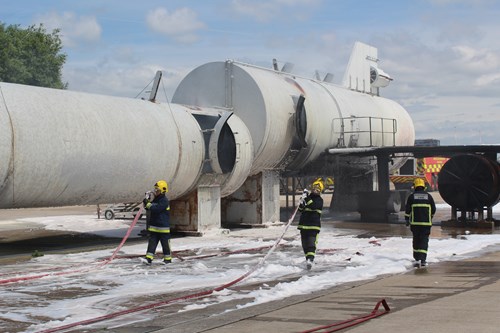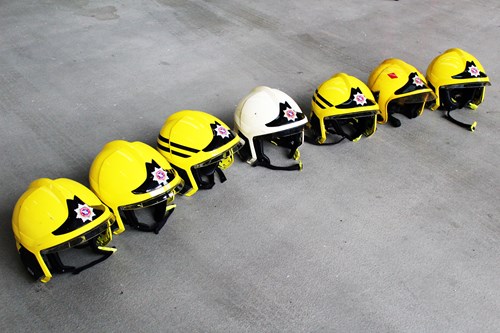
When you apply to be a Cadet, you are signing up for firefighting training that can and will be applied to real-life situations. One thing, among many, the programme provides is the opportunity and background for you to become a qualified firefighter for a fire service, should you desire to continue in this career post-placement. We spoke to Jade, from Knowsley, once a Cadet, now a Firefighter in Development at LJLA RFFS. We asked about her story and how she progressed from the Cadet programme to a permanent firefighter and how the opportunities and training has helped her get to where she is today.
What speared your interest in the RFFS?
I first became interested when I spotted the Cadet Programme on social media. My Mum encouraged me to apply as soon as I could, and I’m so glad I listened to her. My dad was also a Firefighter so I sort of grew up around the job and knew a little bit about it.
When you were offered the job at LJLA, were you aware that there could be a position offered upon finishing the 12-month placement?
Yes. When we started our training, the crew talked to us about the wide range of job opportunities at LJLA. Like anywhere else, a full-time job is never a guarantee after a temporary placement, but you are able to apply for almost any job in the airport after you finish, and this includes full-time Firefighter positions, both temporary and permanent, should they be advertised.
When did you apply for the Full-Time Firefighter vacancy?
I applied for the vacancy in February 2016. There were a few vacancies that opened up but I was unsuccessful the first couple of times. I was really keen to get the job, though, so the next time I saw the role advertised internally, I applied. Third time lucky, as they say.
When you began your role as full-time Firefighter, did you find the tasks were largely different from the Cadet Programme, or were they really similar?
It’s quite similar, really. Firstly, to be any kind of firefighter, you have to train in things like hose running, rope climbing and working at heights, so those things will always be imperative to my job, regardless of level. Secondly, when you are a cadet, you have a ‘guide’ who is a member of the watch; they stick with you and assist you with your tasks, like an unofficial supervisor. However, being a Firefighter in Development, you are solely responsible for yourself and the other members of the watch crew. For example, were the worst to happen and a massive incident occurred on the runway, I would be responsible for ensuring the safety of myself and my crew. As a cadet, you’re under someone’s wing almost, so now I have moved up, I have a lot more responsibility.

Do you have anything you wish you knew when you were applying for the Cadet programme?
When I was applying, the one thing I wish I knew was how important it is to be fit. I think it’s generally known you can’t be unfit to do the job, but, if I could offer any advice it would be to get to the gym, weight train and keep up with cardio. I have built my cardio fitness up now so I’m focusing on my weight training but it is so important starting out to maintain that level of physical fitness.
Another thing would be to get your heads in the books. On station, it is highly physical but we also take theory classes; they are a vital part of our training and you will take them no matter what level you are. So, read up on industry news, training methods used, and case studies; anything that will help you to gain a wider knowledge about the Aviation Fire Service.
Do you have any advice for the applicants?
Do everything I said in the previous question and you should be fine. Just keep your fitness up and study. Also, to be successful in the role, you need to be passionate about it. It’s physically demanding and you need to want it. I learnt this without the prior knowledge, so take my advice. However, that being said, I wouldn’t change my experience for anything and I have earned a career from the programme. All I have to say now is good luck!